Trump engaged in insurrection three years ago today. The Supreme Court must say so.
Donald Trump has asked the Supreme Court to address whether he engaged in insurrection on Jan. 6, 2021. The nation needs the justices to rule that he did.
I told my family and out-of-town friends on Jan. 6, 2021, that the people invading Capitol were more than three miles away and I was safe in my apartment in Dupont Circle.
“People are still using the dog park!” I said, a perhaps-too-forced reassurance of normalcy.
The reality, of course, was much different.
Donald Trump — the man in whose name the rioters were acting — was just a mile down 16th Street from me in the White House, silent throughout much of the day. Mike Pence and other leaders of our government were literally being hidden away so that the mob could not get them. Reporters and congressional staffers — my friends — were updating me throughout the day about their and their colleagues’ safety.
When the city announced a curfew for that night, some friends asked if I wanted to come to their place beforehand so that I would be with others.
I didn’t. Maybe I should have. Instead, I sat in my apartment glued to the news and Twitter — watching history unfold and thinking about what was happening.
Three years later, looking back at what I wrote that evening illustrates just how minimal the presidential disqualification is that many of us believe applies to Trump under Section 3 of the Fourteenth Amendment and over which the U.S. Supreme Court will be hearing arguments in a little more than a month.
Applying the disqualification to hold federal office to Trump — and allowing states to do so in their 2024 presidential election preparations — is, quite simply, the least that we should do to protect this democracy.
I’d spent the previous months and years before that day in 2021 researching and writing about, as my editor and I put it, “parts of the Constitution you didn’t realize you’d be spending this much time thinking about.”
Among other stories, I’d written a long report at BuzzFeed News about the history of section 4 of the 25th Amendment: a still-unused provision that allows the vice president and Cabinet to remove the president from power when deemed necessary because they have determined that “the President is unable to discharge the powers and duties of his office.” It is as close as the Constitution comes to an “in case of emergency, break glass” provision.
Although impeachment was an obvious and essential response to Jan. 6 — as I discussed recently here at Law Dork — there are few things that illustrate how I saw that moment than my real-time response regarding the 25th Amendment.
And, it should be noted, I hadn’t thought the 25th Amendment was some easy out. In fact, a lot of the takeaway from my investigation into the 25th Amendment was how difficult it is to successfully invoke Section 4. There’s a reason it has never been used. As such, and due to the specific purpose for the provision, I had not, for example, thought the 25th Amendment would be the best response to the Georgia call — although I thought impeachment would have been appropriate.
But, on that day, it was abundantly clear to me that Pence and the Cabinet had a responsibility to the nation to remove Trump from office immediately — giving Congress time to act on impeachment in the days and weeks ahead, but acting on a quicker timeline to end Trump’s control of the executive branch.
I was not an outlier. The Washington Post and its ordinarily staid, and relatively conservative, editorial board agreed with me in an editorial published an hour later.
As to the 25th Amendment, they also agreed:
In the days and weeks that followed, Pence and the Cabinet failed to invoke the 25th Amendment and the Senate failed to convict Trump in the impeachment that followed, leaving Trump to finish out his term and forcing us into this Fourteenth Amendment debate.
Now, three years later, Donald Trump and people allied with the man behind that day are attempting to convince us that there is any real question about whether Trump engaged in insurrection on that day.
Particularly for lawyers doing so, they, too, are failing us.
Over the coming month, a handful of lawyers will be arguing in briefs at the U.S. Supreme Court, and then at oral arguments on Feb. 8, that the justices must reverse the Colorado Supreme Court’s decision holding that Trump “engaged in insurrection,” is disqualified from being president under Section 3 of the Fourteenth Amendment, and can be barred under Colorado law from appearing on Colorado’s primary ballot.
Some of the arguments being brought forth — like whether the president is an “officer” subject to Section 3 of the Fourteenth Amendment — are weak and ultimately show how much weaker other arguments are. Arguments about whether states have the authority to act as Colorado has done, meanwhile, are arguments about the implementation of the amendment. I don’t think they’re successful either, but they’re (more or less) arguments being made by lawyers engaged in lawyering about issues not previously implemented in this way.
Those lawyers, however, who go so far — as Trump’s lawyers did in their petition for certiorari — as to argue that Trump did not engage in insurrection at all are failing the law, the court, and the nation.
The Supreme Court should affirm the Colorado Supreme Court’s decision, but — given that they granted certiorari in response to Trump’s petition — they should do so in an opinion concluding specifically and explicitly what we all know to be true: Donald Trump engaged in insurrection three years ago today.
As the Colorado Supreme Court held:
We conclude that the foregoing evidence, the great bulk of which was undisputed at trial, established that President Trump engaged in insurrection. …
As our detailed recitation of the evidence shows, President Trump did not merely incite the insurrection. Even when the siege on the Capitol was fully underway, he continued to support it by repeatedly demanding that Vice President Pence refuse to perform his constitutional duty and by calling Senators to persuade them to stop the counting of electoral votes. These actions constituted overt, voluntary, and direct participation in the insurrection.
Moreover, the record amply demonstrates that President Trump fully intended to—and did—aid or further the insurrectionists’ common unlawful purpose of preventing the peaceful transfer of power in this country. He exhorted them to fight to prevent the certification of the 2020 presidential election. He personally took action to try to stop the certification. And for many hours, he and his supporters succeeded in halting that process.
For these reasons, we conclude that the record fully supports the district court’s finding that President Trump engaged in insurrection within the meaning of Section Three.
It is a necessary ruling that the U.S. Supreme Court must issue itself — for today, for history, and for our future.



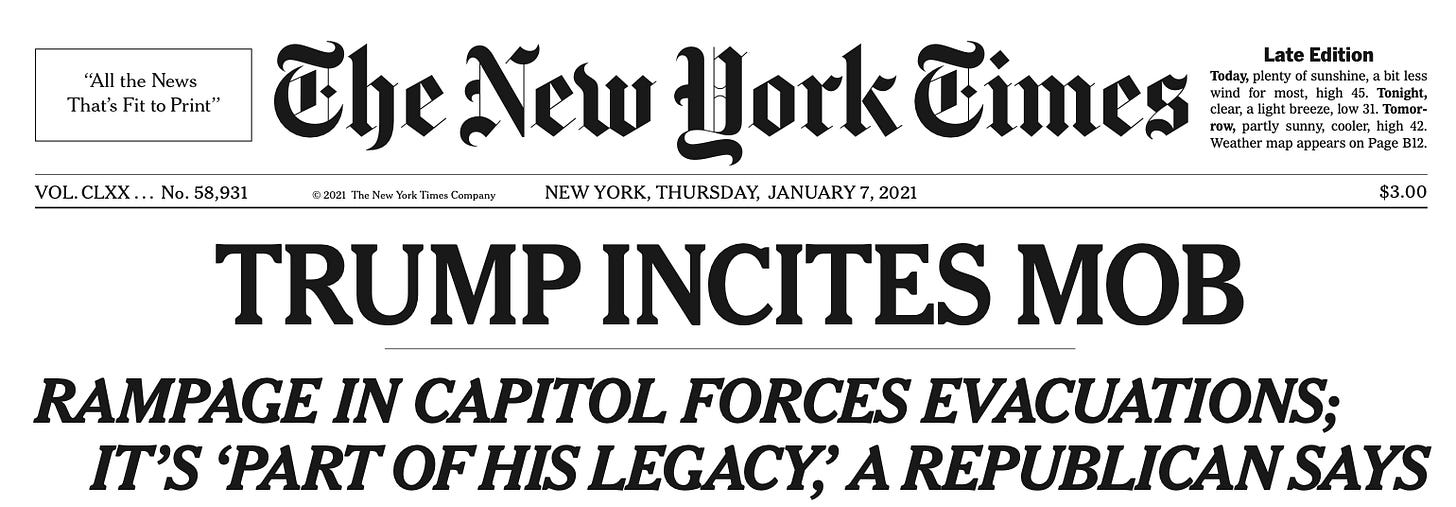
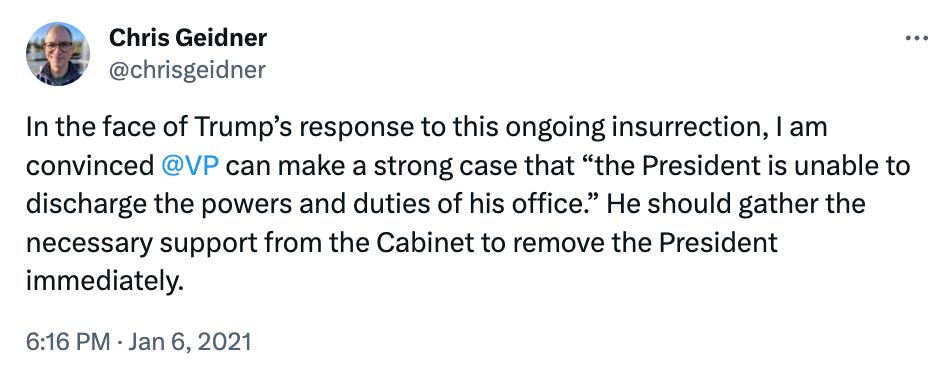
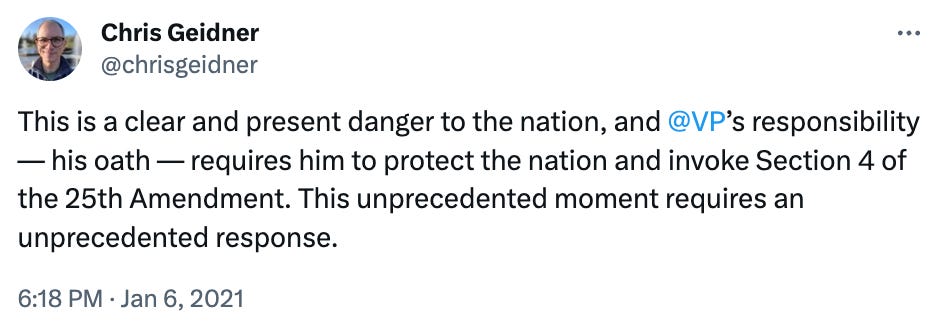
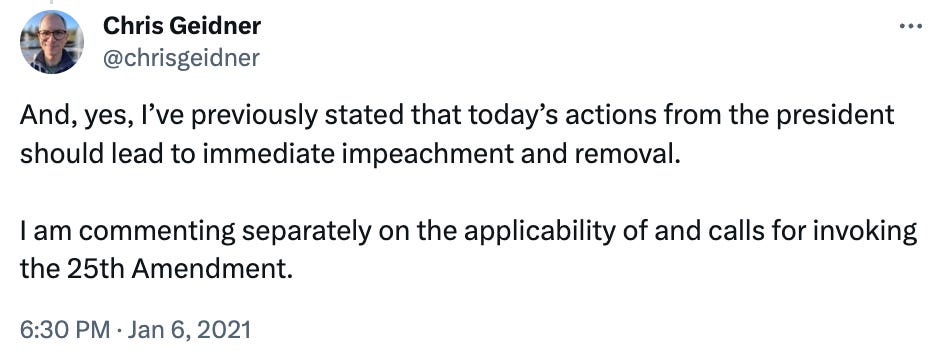

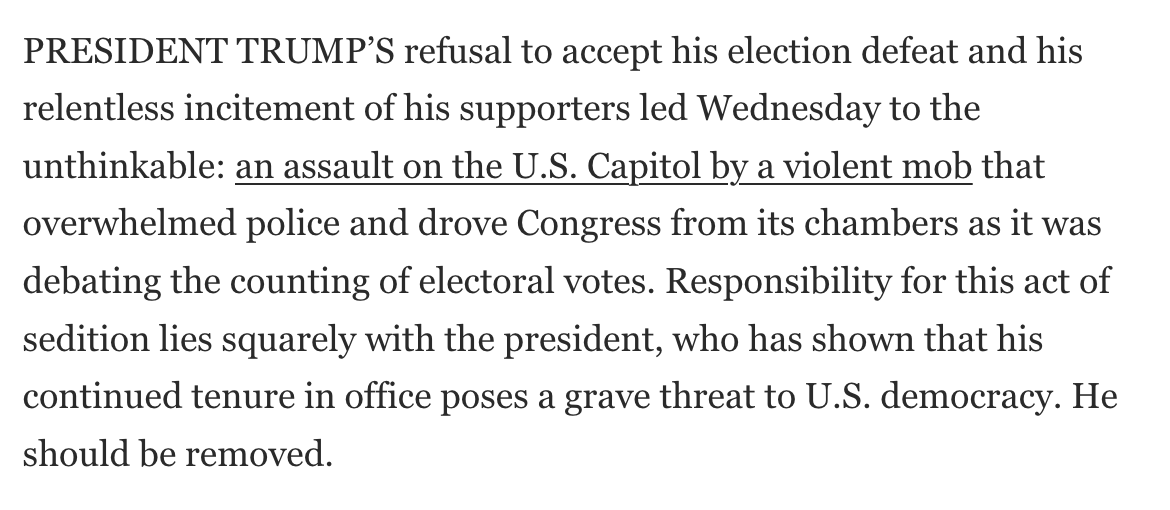
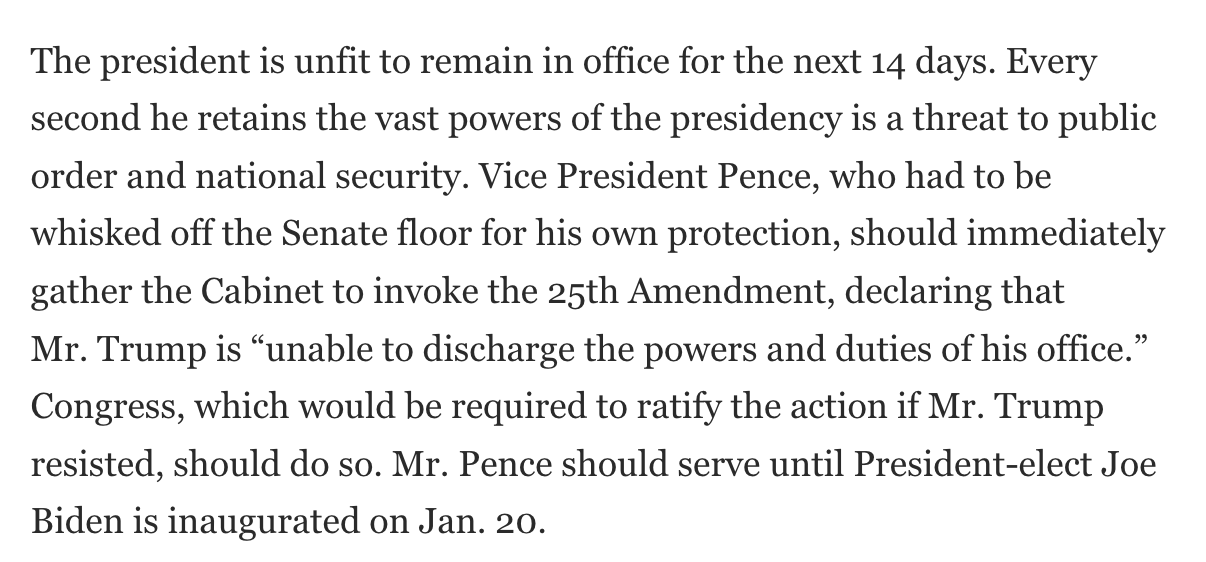
Excellent, excellent piece, Chris. Insightful, prescient and well said. Thank you.
This is a substack about the law and I don't disagree with anything here on those terms. The difficulty for me is that it's not really a constitutional problem or a legal problem; it's a political problem. What ails the nation is not so much Donald Trump, but the fact that tens of millions of voters (still) think Donald Trump is the kind of person who ought to be president. As I see it, we're not asking the courts to protect us from Trump; we're asking them to protect us from these tens of millions of American voters, who quite frankly demonstrate that they do not believe in our system of government. And it seems to me that problem ultimately can't be solved that way. Maybe I'm wrong; maybe this is a necessary first step. But it took decades of rot to get this country into the situation it finds itself in, and as they say, it's a long way back from hell.